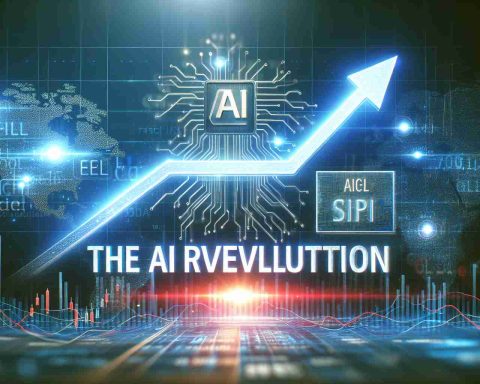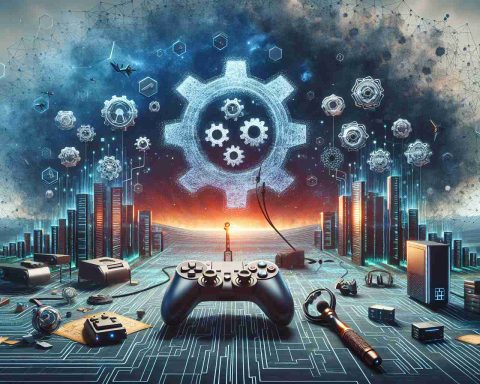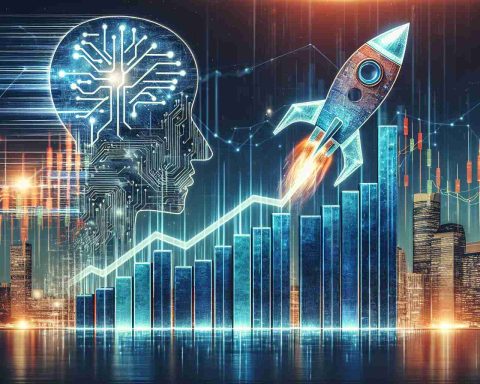With the convergence of artificial intelligence (AI) and gaming, the potential impacts extend far beyond mere entertainment, presenting transformative possibilities for societies and economies worldwide.
AI in gaming is not just a passing trend; it’s reshaping how communities interact and learn. The ability of AI to tailor game experiences to individual player skills means games are no longer just for fun but are powerful tools for education and skill development. This has already led to the creation of educational games that simplify the learning of complex subjects through engaging, AI-supported environments.
The economic ripple effects are substantial. With AI-driven gaming innovations, new job opportunities in AI development, game design, and tech support are emerging, contributing to a diversified job market. Furthermore, in-game economies driven by AI are setting new standards for microtransactions, altering how we perceive and engage with economic models both virtually and in real life.
Yet, these advancements bring challenges. Data privacy concerns are growing as games collect extensive player data for personalized experiences. There is also the question of digital addiction — with AI’s engaging narratives, the risk of increased screen time, especially among children, is a significant issue.
Benefits of this tech evolution include enhanced gaming experiences and new educational avenues. However, it’s crucial to navigate associated risks like privacy issues and potential technological dependencies for leisure activities.
As AI continues to weave itself into the fabric of gaming and society, ongoing discussions around ethical data use and diverse applications are essential to harness its full potential positively.
The Environmental and Social Implications of AI in Gaming
The intersection of artificial intelligence (AI) and gaming is bringing about a transformation that impacts not only the worlds of entertainment and education but also has profound implications for our environment, society, and global economy. While offering exciting prospects for the future, it’s crucial to examine how these advancements affect the present and future of humanity.
The environmental impact of AI-driven gaming is an area that requires attention. The development and operation of highly advanced, AI-powered games demand significant computational resources. This increased demand for computing power translates into higher energy consumption, potentially contributing to a larger carbon footprint. Data centers, which provide the backbone for these digital worlds, require vast amounts of energy, often relying on non-renewable sources. As the gaming industry expands, so too do the environmental challenges associated with its growth.
On a social level, AI in gaming is reshaping how communities interact and learn, ushering in changes that could redefine education and cultural engagement. AI’s capacity to personalize learning experiences is revolutionizing education, making it more accessible and tailored to individual needs. This could bridge educational gaps worldwide, presenting a future where education is universally accessible, adaptable, and engaging.
Economically, the convergence of AI and gaming is spurring job creation and innovation. As more companies invest in AI-driven gaming solutions, new roles in AI development, game design, and tech support emerge, diversifying the job market and enhancing economic opportunities. However, the rise of AI in gaming also poses challenges, such as ensuring data privacy and managing the socio-economic implications of a predominantly digital economy.
Looking to the future, AI’s integration into gaming could serve as a model for other industries, showcasing the potential for technology to drive learning and innovation. Yet, it is vital that this technology evolves responsibly. The broader societal impact hinges on our ability to address data privacy concerns, mitigate technological dependencies, and minimize environmental impacts.
Ultimately, AI in gaming offers a powerful glimpse into a future intertwined with technology, where the challenges of today—energy consumption, ethical data use, and digital addiction—must be addressed to ensure that the benefits of AI can be harnessed for a sustainable and equitable world. Balancing innovation with responsibility will be key to shaping a future that fully embraces the potential of AI while securing its advantages for all.
How AI is Revolutionizing Gaming: Insights, Benefits, and Challenges
The intersection of artificial intelligence (AI) and gaming is more than a futuristic endeavor; it represents a seismic shift in multiple sectors, including education, economics, and data privacy. As this synergy continues to develop, it offers a plethora of new and exciting prospects while posing significant challenges that need consideration.
Innovations and Benefits in AI Gaming
Artificial intelligence in gaming is driving a new era of personalization, where the gaming experience is meticulously tailored to each player’s unique skills and preferences. This level of customization not only enhances leisure activities but also has significant implications for educational applications. AI game design leverages interactive and immersive experiences to simplify complex learning concepts, making subjects like mathematics and science accessible and engaging to a broader audience.
Economic Opportunities and Trends
AI’s impact on gaming economics is profound, catalyzing job creation across various sectors including AI development, game design, and technical support. This trend is expanding the tech job market, offering diverse career opportunities. Moreover, in-game economies, which are increasingly driven by sophisticated AI algorithms, are redefining virtual and real-world economic models. The standards for microtransactions and digital assets continue to evolve, showcasing AI’s role in modern economic discourse.
Security and Privacy Concerns
Despite these positive developments, several challenges loom, most notably in data privacy and security. As AI systems in games extensively collect user data to enhance personalization, concerns around data protection are becoming more prominent. The need for robust security measures and transparent data policies is critical to safeguard user information and maintain trust in AI-enabled technologies.
Addressing Digital Addiction
AI’s capability to craft engaging and immersive gaming narratives also raises the risk of digital addiction. The potentially addictive nature of AI-enhanced games, particularly among younger audiences, highlights the importance of promoting responsible gaming habits and establishing guidelines to limit excessive screen time.
Future Predictions and Sustainability
Looking ahead, the continued integration of AI in gaming promises even more innovative developments. Predictions indicate that AI will not only enhance gameplay but will also play a pivotal role in creating sustainable gaming ecosystems. By improving game efficiency and reducing energy consumption, AI can contribute to environmentally sustainable practices in the gaming industry.
Conclusion
As artificial intelligence redefines the landscape of gaming and society, it is crucial to balance its benefits with potential risks. This involves fostering ongoing dialogue about ethical data usage and exploring various applications that maximize AI’s positive impact. By navigating these challenges thoughtfully, we can fully unlock AI’s transformative potential in gaming and beyond.
For more insights and updates on AI and gaming, visit the main AI website.



















